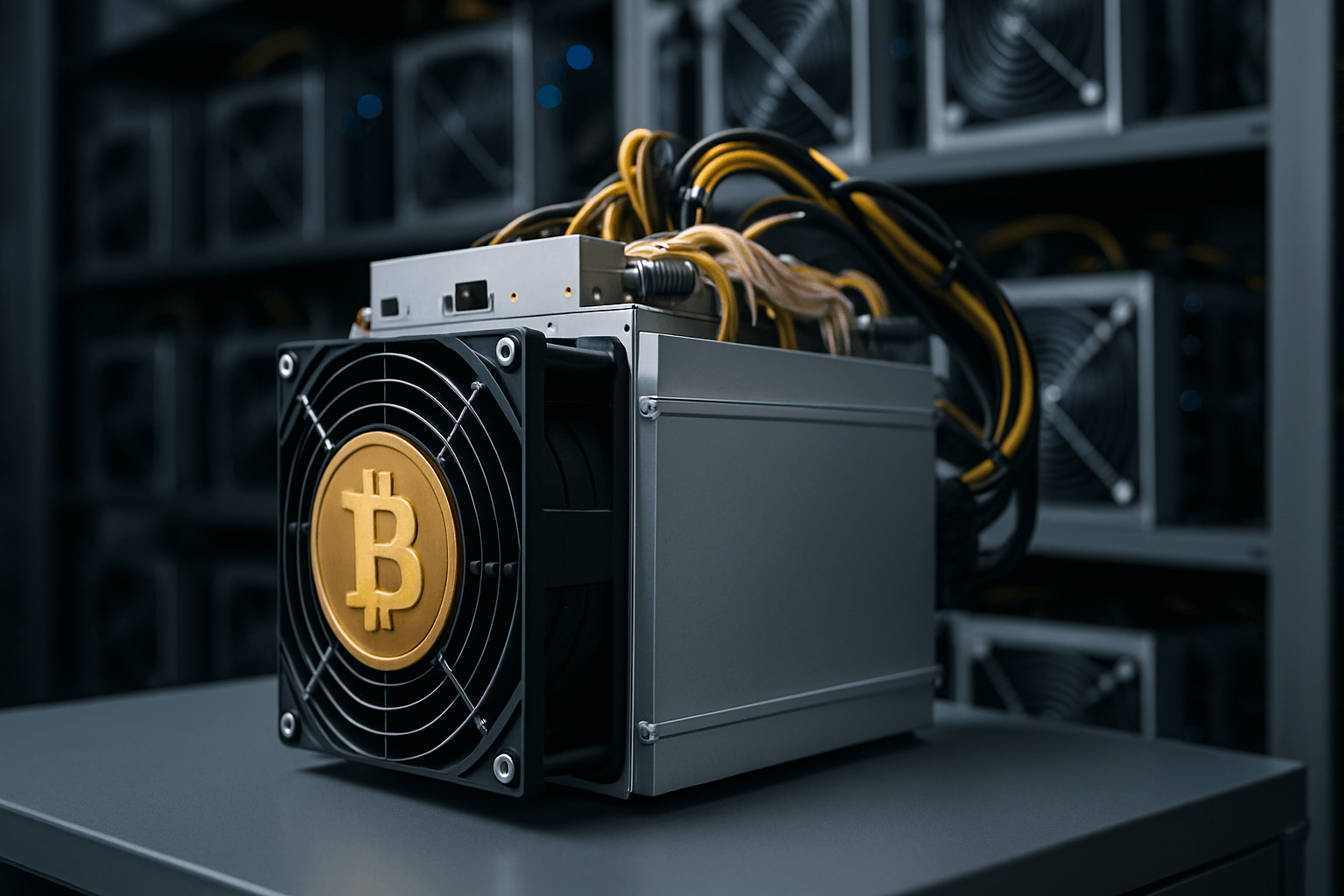Borrowing
How to Take Out US Dollar Loans with Crypto
December 07, 2023
Borrowing
December 07, 2023

Did you know your crypto assets can be used as collateral for USD loans? Read on to find out how to turn your crypto into fiat liquidity.
A cryptocurrency is not only a form of digital money used for transactions, but also a potential source of liquidity for investors and traders.
Sometimes, you may need to access some cash without selling your crypto assets, especially if you expect them to appreciate in value in the future. This is where crypto loans come in. One particular type of crypto loan that doesn't rely on regulated financial institutions (such as traditional banks) is a decentralized finance (DeFi) loan. DeFi loans allow you to take out money using your crypto as collateral.
Let’s say you have 1 BTC, which is worth $30,000, and you want to buy a car that costs $15,000. You have two options:
First, you can sell half of your BTC in order to gain liquidity, exposing you to tax liabilities in the form of capital gains tax.
Or, you can use your BTC as collateral and borrow up to $30,000 in USD through a decentralized finance platform.
The second option allows you to keep your exposure to BTC, which you may expect to appreciate in value, and avoid paying taxes on the appreciation of your assets. You can then use the USD loan to buy the car and repay the crypto loan with interest when you have enough cash flow or when you ultimately sell your BTC.
In this article we'll show you how to take out USD loans using your crypto as collateral. We will also explain how DeFi crypto loans work, examine their benefits, and take a look at some good borrowing options for beginners.
Before taking out USD crypto loans, you need to understand how DeFi loans work. Most crypto loans differ from traditional loans in several ways.
First, they are decentralized, which means that there is no intermediary or central authority involved in the process. Instead, the loans are governed by smart contracts, which are self-executing agreements that run on the blockchain. The smart contracts enforce the terms of the loan like the interest rate, the loan term, and the liquidation conditions.
Second, they are flexible, which means that you can choose from a variety of lending platforms and protocols that offer different features and benefits. For example, some platforms allow you to borrow money against a wide range of cryptocurrencies, while others only support specific digital assets. Some platforms have fixed interest rates, while others have variable ones and certain platforms have no loan term limit, while other platforms have a maximum duration.
Third, they are overcollateralized, meaning you have to deposit more value in crypto than the amount you want to borrow. This ensures that the lender can recover their funds in the case of a default by the borrower.
DeFi loans offer the following advantages:
Lower Annual Percentage Rates (APRs): One of the most appealing aspects of DeFi loans is the possibility of significantly lower interest rates than traditional loans. These rates are not determined by a centralized authority like the Federal Reserve, but are based on the market’s supply and demand forces.
Transparency: DeFi platforms are popular choices thanks to their transparency. Users can track every transaction on the blockchain, ensuring there are no concealed fees, undisclosed interest rate changes, or any other modifications. This transparency provides a level of confidence that is not always present in centralized systems.
Non-Custodial: When you lend or borrow through a DeFi platform, you keep ownership of your assets. These assets are not given to a centralized entity, as with traditional lending, thus you don't need to trust any individual counter-party.
Available Worldwide: Anyone with an internet connection and a crypto wallet can access DeFi loans, regardless of their location, identity, or credit history. There are no KYC (know your customer) limitations or necessary identity verifications for DeFi users.
While DeFi loans are attractive for a wide range of reasons, there are some disadvantages as well:
Complexity: DeFi platforms can be difficult to use, especially for beginners. To access DeFi loans, users need to connect to a compatible wallet, navigate the platform’s interface, understand smart contracts, and know how to withdraw funds. The learning curve can be high.
Difficulty in Loan Tracking: DeFi platforms may not always provide convenient features like collateral alerts or intuitive interfaces for tracking your loan status. This means borrowers must proactively manage and monitor their loans, which can be tedious.
Lack of Customer Support: DeFi operates in a decentralized environment, and while this is a core principle, it also means that there is no centralized customer support to assist users in the lending process. Users are fully responsible for their loans and must solve issues independently.
In order to effectively use DeFi loans, you'll also need to familiarize yourself with some standard loan terms used across DeFi lending and borrowing platforms.
Some of the most important terms include:
The assets you deposit as a guarantee for your loan are your "collateral." In DeFi, collateral is usually in the form of cryptocurrencies or tokens that are locked in a smart contract until you repay your loan. Collateral serves as a protection for the lender in case the borrower does not make their payments.
The loan amount and type of collateral required for a loan depend on the platform and the market conditions. Some platforms accept only specific types of collateral, such as ETH, BTC, or stablecoins, while others accept a variety of collateral such as NFTs, synthetic assets, and more.
The collateral itself is safely stored using cryptography and blockchain smart contracts which leave the collateral assets within the custody of the borrower, but under the condition that the lender may liquidate the assets if the collateral value falls below a certain point.
LTV is the ratio of the loan amount to the value of the collateral. For example, if you borrow $100 worth of crypto with $200 worth of crypto as collateral, your LTV is 50%.
LTV is an indicator of the risk level of the loan. The higher the LTV, the higher the risk for the lender. Different borrowing markets normally have different maximum LTV thresholds. The higher the LTV threshold, the lower the amount of collateral you need to deposit in order to borrow. However, this also comes with a higher chance of liquidation. The lower the LTV, the more collateral you will have to deposit in order to borrow, but also the lower the chance of liquidation.
DeFi platforms usually have a maximum LTV limit, which means you cannot borrow more than a certain percentage of your collateral value. If your LTV exceeds the limit, your loan may be liquidated. The LTV limit depends on the platform and the crypto market conditions, such as the volatility of the collateral and the borrowed asset, the supply and demand of the lending and borrowing market, and the platform’s risk management policy.
Liquidation is the process of selling your collateral to repay your loan. Liquidation happens when your LTV surpasses a certain threshold, called the liquidation ratio. The lending platform decides on the liquidation ratio and it generally varies depending on the volatility of the collateral and the borrowed asset. For example, if the liquidation ratio is 80%, your crypto loan will be liquidated when your LTV exceeds 80%.
Liquidation is a strategy for protecting the lender from losing money in case the borrower fails to repay the loan or in case the value of the collateral drops significantly. For borrowers, liquidation usually costs them their entire collateral + an extra liquidation penalty.
As with a regular loan, the interest rate is the amount that you have to pay as a cost of borrowing. The interest rate is determined by the supply and demand of the lending and borrowing market and may fluctuate over time. The higher the demand for borrowing an asset, the higher the interest rate. The higher the supply for lending out that asset, the lower the interest rate.
Interest rates are usually expressed as an annual percentage rate (APR), which is the interest rate for a whole year.
The loan term is the duration of the loan or the total time period that you have to repay the loan. DeFi loans can have different loan terms, depending on the platform and the type of loan.
Thanks to the overcollateralized nature of DeFi loans, many loans are open-ended, meaning they have no fixed maturity date and you can repay them anytime. Other DeFi loans, however, do have a specific maturity date by which the loan must be repaid.
The loan term affects the interest rate and the risk of the loan. As with personal loans, shorter loan terms have higher interest rates while longer loan terms have lower interest rates. Borrowers and lenders agree on the loan term according to their preferences, expectations, and risk appetites.
To learn more loan keywords that may affect your DeFi loans, check out our article "DeFi Loans: The Terms You Should Know"
As we have covered, DeFi loans allow you to put up your existing crypto holding as collateral to borrow other assets against.
One of the most attractive use-cases of DeFi loans involves borrowing U.S. Dollar (USD) funds against your crypto. Due to the nature of DeFi markets as separate from traditional financial institutions, borrowing fiat USD can take several extra steps compared to simply borrowing crypto.
Thankfully, there are attractive solutions for borrowers. Below we take a look at how you can borrow stablecoins, which are cryptocurrencies that are tied to the value of USD — meaning the price of 1 stablecoin = $1.
We also look at some true USD solutions that allow you to borrow fiat USD against your crypto holdings.
Stablecoins are one of the most popular borrowing options for crypto loans. Stablecoins are a type of crypto asset that is designed to keep a stable value, usually linked to a fiat currency like the US dollar (USD) or a basket of assets.
These assets combine the advantages of the blockchain including speed, security, and transparency, with the stability of fiat currenies such as low volatility and broad acceptance.
The three most popular stablecoins, Tether (USDT), USD Coin (USDC), and Dai (DAI), are all pegged to the US dollar.
By borrowing stablecoins, you can avoid the risk of price fluctuations and benefit from the stability of fiat. You can use stablecoins to pay for goods and services, hedge against market volatility, or exchange them for other crypto or fiat currencies.
There are currently not many DeFi platforms out there that allow you to borrow fiat USD against your crypto assets. The majority of such platforms are centralized and require extensive identity verification to lend out USD.
Thankfully, there's a new platform that allows you to take out fiat USD against your crypto assets: Rocko.
Rocko is a new platform that enables crypto owners to easily and securely borrow from popular DeFi protocols like Aave, Compound, and Morpho and get funds in minutes — no experience needed! Use the loan to purchase real estate, pay down higher-rate debt, make everyday purchases, and much more.
Rocko also provides a loan management dashboard and tools like text and email alerts to help manage your loan and collateral. The Rocko team consists of experienced crypto enthusiasts who are ready to help you with any questions you may have. You can join the Rocko Discord server, follow our Twitter account, or visit our resource center to learn more about DeFi borrowing.
Sign up for Rocko and get a loan today!
Rocko does not guarantee the reliability of the Site content and shall not be held liable for any errors, omissions, or inaccuracies. The opinions and views expressed in any articles on rocko.co are solely those of the author(s) and do not reflect the opinions of Rocko. The information provided on the Site is for informational purposes only, and it does not constitute an endorsement of any of the products and services discussed or investment, financial, or trading advice. A qualified professional should be consulted prior to making financial decisions.

Rocko How-tos
Lock In Your Rate: How Kairos Swap Brings Fixed-Rate Lending to DeFi If you've ever borrowed against your crypto on Aave, Morpho, or similar…
September 15, 2025

Crypto & DeFi
Why Borrow Against Staked ETH? Liquid-staking tokens (LSTs) such as stETH, wstETH, cbETH and rETH let you keep earning staking rewards while…
June 17, 2025

Crypto & DeFi
Bitcoin Mining Loans: How to Fund Your Mining Business Bitcoin mining is the backbone of the Bitcoin network—a decentralized process where…
May 07, 2025